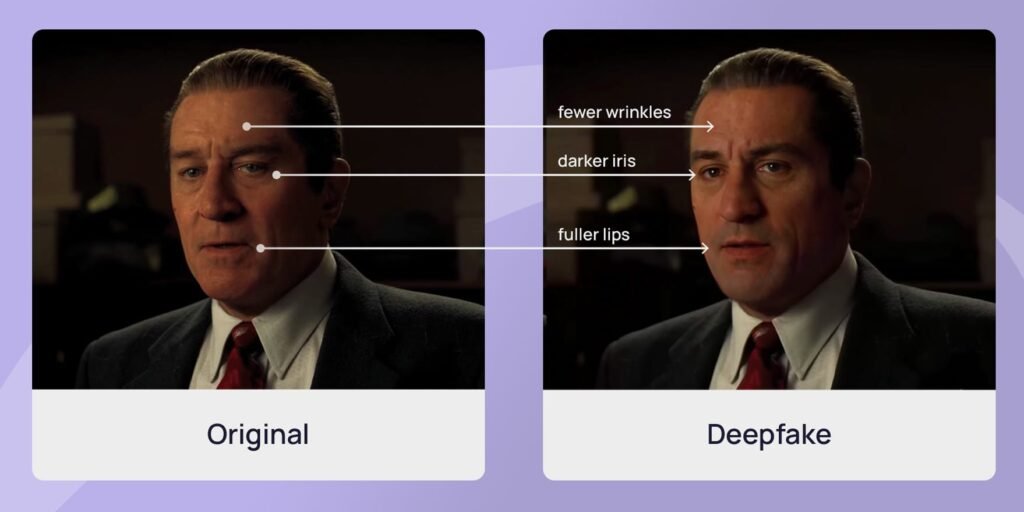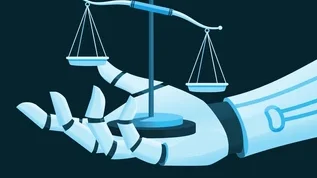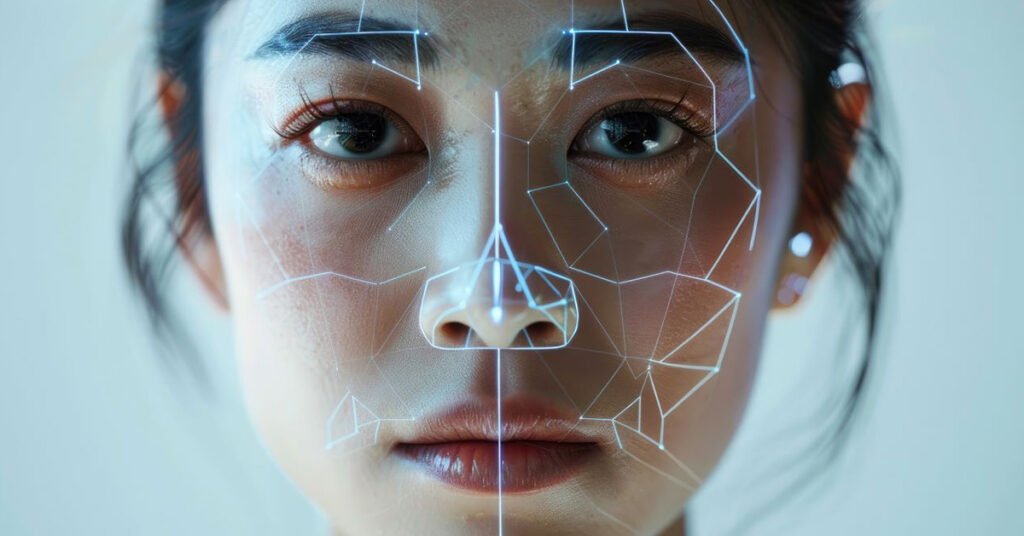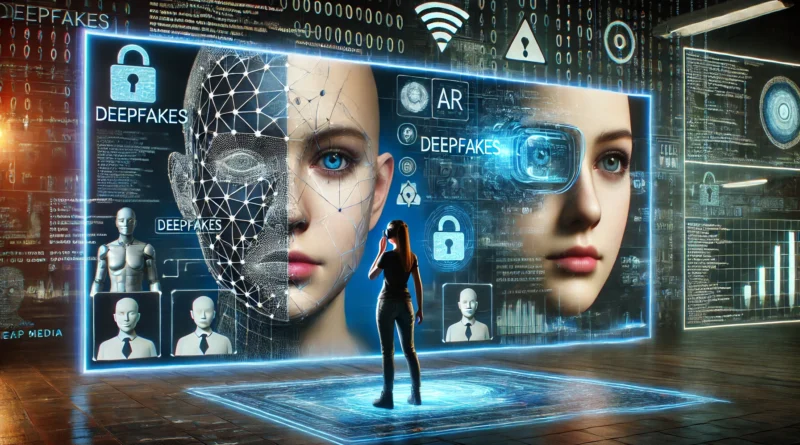The Ethics of AI-Generated Deepfakes: Navigating the New Reality
Introduction
When I first came across the concept of AI-generated deepfakes, I couldn’t help but feel a sense of unease. It wasn’t just because of the technological marvel behind it, but because of the ethics surrounding its potential use. Imagine a world where video and audio can be easily manipulated to create fake realities, making it almost impossible to distinguish between what’s real and what’s fabricated.
The emergence of deepfake technology has been nothing short of revolutionary. On the one hand, it has opened up creative possibilities for filmmakers, content creators, and even educators. On the other hand, it has raised serious concerns about the manipulation of information, privacy violations, and the potential for harm.
I spent a lot of time researching the growing role of AI in media manipulation, diving into real-life cases and looking at the ethics of it all. How far are we willing to go with this technology? Where do we draw the line between creativity and exploitation? These are the questions I’ve been grappling with as I explored the implications of deepfakes.
In this article, I’ll break down the ethics of AI-generated deepfakes and how they’ve become a new reality in our digital age. We’ll explore the potential benefits, risks, and moral dilemmas posed by this technology, and discuss what we can do to navigate this new frontier responsibly.
Table of Contents
Why This Matters Now
In today’s world, where information is consumed at an unprecedented rate, the rise of deepfakes has given us a new way of thinking about truth and trust. I’ve spent quite a bit of time reflecting on how AI technology can alter not just what we see but also how we perceive reality.
Why is it so important to think about the ethics of deepfakes right now?
1. The Impact on Trust and Media Integrity

With the advent of deepfake technology, it’s becoming harder to trust what we see online. The idea of manipulating video to create a completely false narrative has raised significant concerns for both journalism and public perception.
As someone who’s passionate about truth in media, I find it both fascinating and alarming that deepfakes can now be used to distort the public record. In some ways, we’re moving from a world where visual evidence is powerful to one where we have to constantly question whether something is real or not.
2. The Proliferation of Misinformation
Deepfakes have become a major tool for spreading misinformation, especially in the political sphere. As I looked deeper into the issue, I realized just how easy it is for bad actors to create and share false narratives that can influence public opinion, manipulate elections, and damage reputations. It’s a dangerous tool if used maliciously, and one that requires thoughtful regulation.
3. Ethical Boundaries and Responsibility

As much as AI has opened doors to innovative creativity, it also forces us to confront ethical questions we haven’t fully addressed yet. I’ve thought a lot about where we draw the line when it comes to AI-generated content, especially in the context of personal privacy. Can we create something that looks like someone, sounds like them, and acts like them, without causing harm? And when it crosses the line, who takes responsibility?
These are crucial conversations we need to have as deepfake technology becomes more prevalent and powerful. What ethical guidelines should we follow, and how can we use AI in ways that are both innovative and respectful of individual rights?
The Pros of AI-Generated Deepfakes
While deepfakes have certainly gained a lot of negative attention, I think it’s important to also recognize the creative potential that comes with this technology. As I did more research, I found some benefits of deepfakes that could be incredibly positive if applied in the right way.
1. Revolutionizing the Film and Entertainment Industry
As someone who’s watched the film industry evolve over the years, I can see how deepfakes could be a game-changer. Imagine bringing back an actor for a scene in a movie even after they’ve passed away, or seamlessly merging two actors’ performances to create something that never existed before.
- Deepfake Tech in Film: Directors and creators could use deepfakes to push the boundaries of visual storytelling. A perfect example is the use of CGI and deepfake technology to create characters or de-age actors, much like we’ve seen with actors like Robert Downey Jr. in the Marvel Cinematic Universe.
2. Personalized Content for Marketing
In the world of digital marketing, personalized content is key. Deepfakes can be used to create highly customized experiences for users, where advertisements are tailored with their own face or voice, making the experience feel more personal and engaging.
- Customer Engagement: The ability to create interactive, personalized ads could transform how brands connect with their audience, offering a whole new level of customer engagement.
3. Enhanced Learning and Education
Imagine a world where students can have AI-generated tutors or teachers who can explain complex topics with the voice and face of someone they admire. Deepfakes have the potential to create a more immersive and personalized learning experience for students worldwide.
The Cons of AI-Generated Deepfakes
Despite the potential benefits, there are undeniable ethical concerns that come with deepfake technology. As I dug deeper into this issue, I found myself becoming more aware of just how dangerous this technology can be when used improperly.
1. The Threat of Misinformation
As someone who values the importance of truth, it’s hard to ignore the massive implications deepfakes have for spreading false information. In the political landscape, it’s becoming alarmingly easy to manipulate video footage to discredit public figures, spread fake news, or incite violence.
- Undermining Trust: With deepfakes, it’s harder than ever to tell what’s real. And in a world where misinformation spreads like wildfire, this technology can undermine trust in the media, government, and public figures.

2. Privacy Violations and Consent
The fact that we can now create deepfakes that perfectly replicate someone’s face and voice raises serious questions about privacy and consent. I found numerous examples of celebrities and public figures having their likeness used in deepfake videos without their consent, leading to reputational damage and legal battles.
- Impact on Individuals: I’ve realized that deepfake technology can violate personal privacy, turning it into a tool for harassment and defamation. And as this technology becomes more accessible, we might see more personal attacks using deepfakes.
3. Legal and Ethical Issues
The rise of deepfakes presents a complex legal challenge. Who owns a deepfake of someone else? Should we have laws that restrict or regulate the creation and distribution of deepfakes? These are big questions that still need addressing.
CONCLUSION
The world of AI-generated deepfakes is a double-edged sword. On one hand, it has incredible potential for creativity and innovation, but on the other hand, it poses serious ethical dilemmas that we need to address. As we move forward with this technology, we need to find a balance between pushing boundaries and respecting privacy.
We’re standing at the intersection of creativity and ethics, and it’s important that we have these conversations early. As this technology continues to evolve, I’m personally looking forward to seeing how society addresses the responsibilities that come with it.
Want More Insights Like This?
If you’re as fascinated by AI, deepfakes, and their ethical implications as I am, don’t forget to subscribe to TechGuidely’s newsletter. Get weekly updates, insights, and deep dives into the latest tech developments, ethical discussions, and industry changes.
Subscribe Now and join the conversation about the future of AI and its impact on society!
Suggested Articles
- The Rise of Deepfakes: Understanding the Technology Behind the Illusions
A deep dive into how deepfakes are created, the technology behind them, and the impact they have on media and society. - AI and Privacy: How Secure Are Our Digital Identities?
Explore the ethical concerns surrounding AI and privacy, and how new technologies are shaping digital security. - Ethical AI: Can We Trust Machine Learning?
This article delves into the ethical issues surrounding AI development, from bias in algorithms to ensuring fairness and transparency. - How AI Is Transforming the Film Industry: From CGI to Deepfakes
Take a closer look at how AI-generated content like deepfakes is changing the way we create and consume media, especially in the entertainment industry.
Deepfakes in Politics: The Dangerous Side of AI
A closer look at the dangers of deepfakes in politics, how they’ve been used to spread misinformation, and the challenges of combating these threats.

